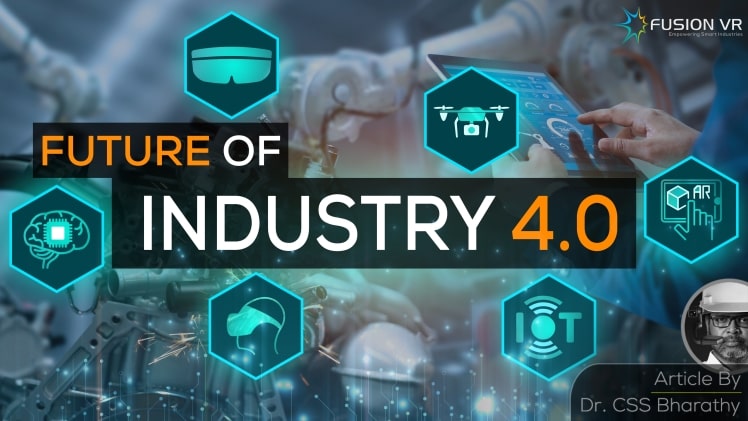Industry 4.0 has a bright future and it is already evident in the developments we see around us. The term refers to the Fourth Industrial Revolution and comprises of many key technologies that will revolutionize the way we manufacture industrial and consumer products.
Many of these technologies have found rapid adoption in recent times. Most of you would have heard about how technologies such as artificial intelligence, augmented reality, virtual reality, robots, drones etc. are making an impact in day to day business and personal lives.
Industry 4.0 is going to become a growth driver for millions of technology and manufacturing jobs in the future. This is good news for the developed and developing economies as they can mobilize the necessary resources they grab and set policy goals to ensure that piece of development for their people.
Industry 4.0 is going to impact the future of manufacturing in many ways. Most industrial processes are complex and require significant investments to get started. Such assets need to be run efficiently and managed effectively. This is easier said than done. With technologies such as Industrial Internet of Things, the connectivity that can be established within the process and its integration with upstream and downstream processes and entities is possible. This is a key enabler for the transfer of data and intelligence across the ecosystem that will make the overall process and its component equipment, machinery and instrumentation much smarter. This helps processes to be optimized resulting in savings on operating costs, improved revenues, productivity and profitability.
While optimization yields great benefits, it also leads to better asset utilization. Plants run longer without outages resulting in lower costs. Fixed operating costs are now spread over greater production volumes and the cost per unit is further reduced. This capability is going to make companies stronger in future.
Thirdly, the manufacturing experience will be transformed with the use of amplified reality, virtual reality and mixed reality in Industry 4.0. These technologies will transform the way employees learn and gain competencies necessary to deliver optimization and asset utilization. The future will have greater use of VR, AR and MR to train personnel, support execution of critical tasks, enabling remote support for guidance and expert opinion. Human error will be reduced to the least possible level and make the workplaces of the future even safer by using Augmented Reality (AR) solutions. Digital Twins are going to be more widespread particularly the Immersive twins with integrated virtual reality (VR) solutions. Industry 4.0 will make workers not only safer but also more productive in the future. Evidence suggests that companies with the best safety record are also the most productive.
Industry 4.0 will have more drones and robots as part of the industrial landscape performing tasks that are not suitable or hazardous for humans. This will also help employees focus on tasks that are more value added such as process improvement, customer service and innovation.
These are definite possibilities that will soon become widely adopted across all types of companies in the manufacturing sector due to people and devices getting connected in the framework of these technologies. It is important that companies begin to engage Industry 4.0 experts to help them realize these possibilities and begin developing a road map to adopt these technologies. The biggest benefit is that this will make these our factories smarter, workers safer and lead to healthier and sustainable returns for companies that invest in Industry 4.0
This post is authored by Dr. CSS Bharathy, Founder, Fusion VR, India. He is a Certified Industry 4.0 Expert with nearly three decades of experience in this industry. He has authored many publications and addressed key industry conferences.

